SUMMARY
This is AI generated summarization, which may have errors. For context, always refer to the full article.
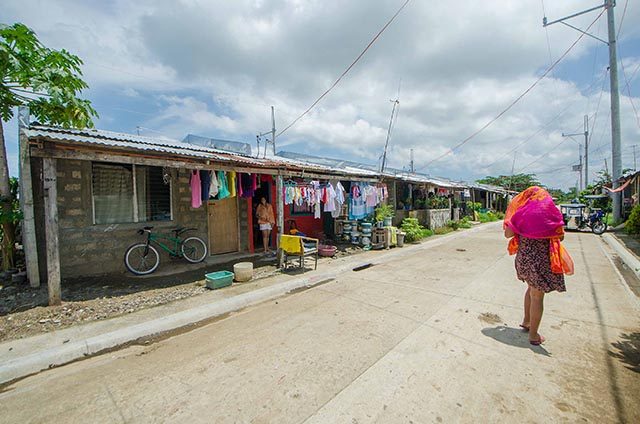
“Magkarooon lang kami ng onting silungan (For us to have a little roof over our heads),” said Danilo Basconcillo, Felicita’s partner.
The two live in a small makeshift house with two of their children and 3 of their grandchildren in Phase 2 of Makati Homeville. Other shanties line the block.
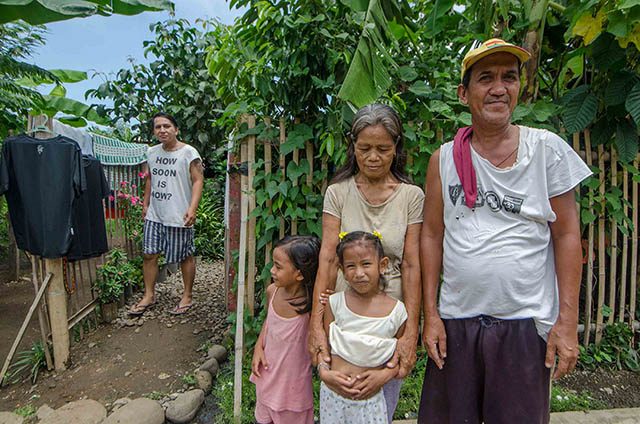
The housing units in Phase 3 were only completed in 2013. People living in Phases 1 and 2, however, still have to make do with building houses on their own until the next set of housing units are completed.
There is no easy access to clean water. Most residents fetch water from several pumps inside Makati Homeville, though the process to put up piping systems have been ongoing.
“Poso lang kami. ‘Di namin alam kung malinis ba talaga [ang tubig]. Minsan may amoy pa,” said Phase 3 resident Angelina Jacinto, who used to live in Barangay Tejeros in Makati. (We only use a water pump. We’re not sure if the water is clean. Sometimes, it smells.)
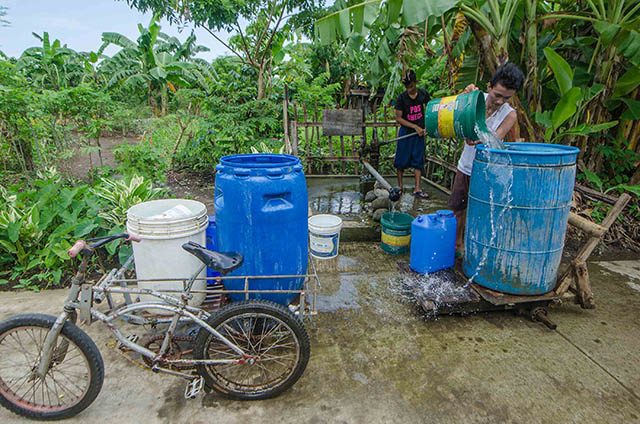
While Jacinto’s family still uses the water pumps, their housing unit received its own source of electricity last July.
Applications for electric meters for the rest of the Phase 3 housing units are underway. Phase 1 and 2 residents still use electric submeters that are legally tapped into existing outlines outside the relocation site.
Water, power, land titles
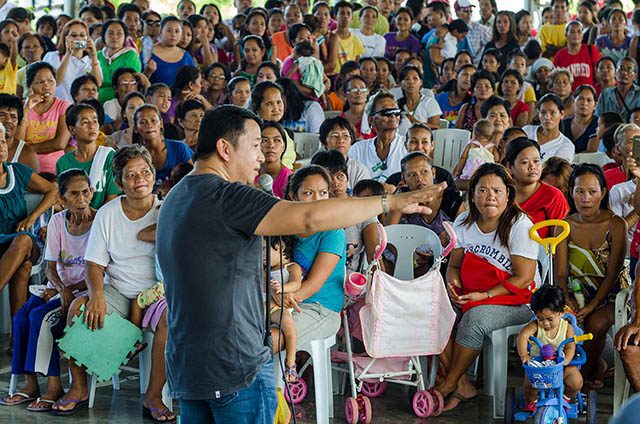
These are some of the concerns that Makati’s Acting Mayor Peña hoped to address when he visited Makati Homeville on Thursday, August 13.
Peña promised the residents that he already ordered the creation of a special task force that would address the immediate problems of the community, including fast-tracking the process of improving their access to electricity and water.
He also said the Makati city government will begin working to provide the Makati Homeville residents with their Transfer Certificates of Title (TCTs), earning him applause from the crowd gathered in the relocation site’s covered court.
“May mga bagay na agad maibibigay. May mga bagay na mapaninimulan. Basta ‘yung proseso, kailangan gumulong,” Peña later told reporters on Thursday.
(There are things we can give immediately. There are things that we could just initiate. The process just needs to be started.)

According to Peña, the new task force just met on Wednesday to start discussing their plans for Makati Homeville.
For the granting of the TCTs, Peña clarified that they would coordinate closely with the city council, as a resolution would be needed for the documents to be given to the Makati Homeville residents.
“Naniniwala ako, kumpiyansa ako, na lahat ng ibinigkas ko rito ay gagawa sila (city council) ng paraan para doon sa parte nila, magkaroon sila ng share sa pagpapatupad ng mga bagay na ‘to,” Peña said.
(I believe that the city council will find ways to do their part in the implementation of the plans I said here.)
He believes that the city councilors, most of whom are Binay allies, will not do anything that would hinder the Makati city government from further helping Makati Homeville. (READ: VP Binay did not abandon Makati Homeville residents – spokesman)
‘We will try’
During the dialogue in Calauan, Peña said he would also be distributing 10 pedicabs for residents to use as a source of livelihood.
He added that he will closely work with several city government departments to come up with other livelihood programs that will “improve the quality of life in the area and empower the [community] to develop improved, secure, and sustainable livelihood strategies.”
Basconcillo agreed, saying that having alternative sources of livelihood will make a huge difference for Makati Homeville residents.
“Trabaho [sana ang ibigay nila] para ‘di na kami luluwas. Kung kaya ko pa, puwede akong mag-construction,” said the 53-year-old, who would regularly go to Makati and become a pedicab driver for two weeks just so he can feed his family back in Laguna.
(I hope they give us jobs so we wouldn’t need to travel back to Makati just to work. If my body allows it, I can be a construction worker.)
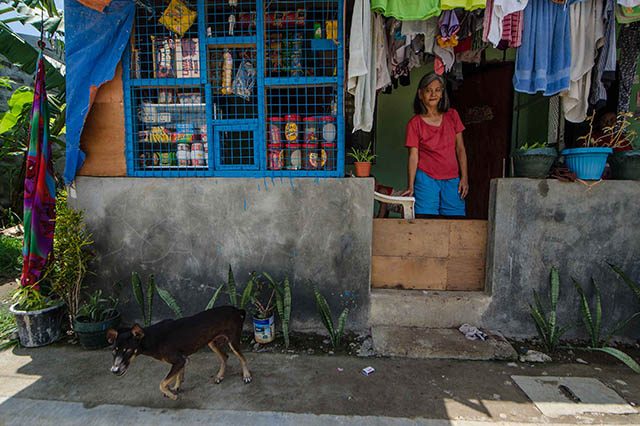
The same goes for Jacinto, who said the average P200 she earns from their sari-sari store daily is often not enough for her family’s daily needs. Her chidren who are working in other cities send money to help in the expenses.
Asked if he will be able to fulfil all his promises to the Makati Homeville residents by 2016, Peña said, “We will try.”
“Who knows? As acting mayor, sa dami nitong ‘nilulunsad kong mga programa, baka mamaya ‘pag si Mayor [Junjun] ay nandito na [sa city hall para umupo bilang mayor uli], baka ituloy-ituloy na niya,” added Peña.
(Who knows? With all these programs I’m launching as acting mayor, Mayor Junjun might even continue them once he returns to city hall). – Rappler.com
Add a comment
How does this make you feel?
There are no comments yet. Add your comment to start the conversation.